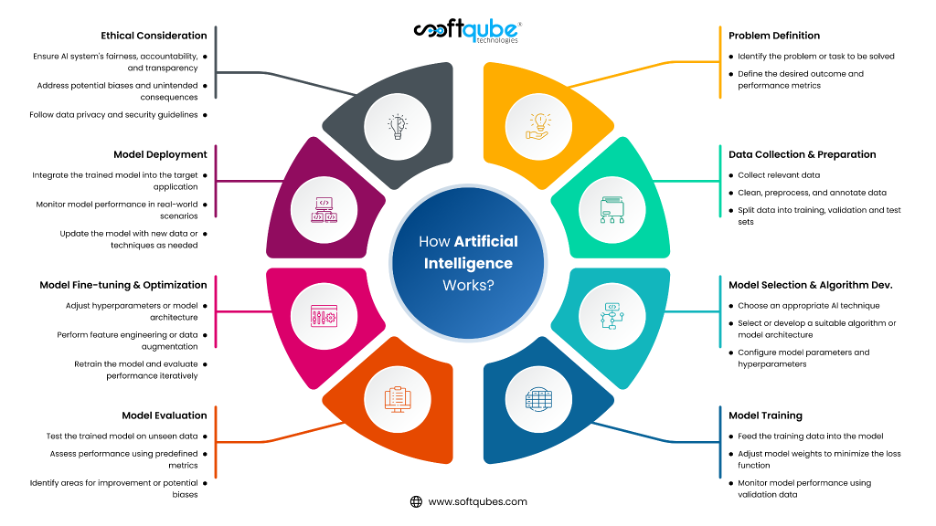Sink your teeth into the cutting-edge world of AI with a daily exploration of the latest trends and developments.

Image courtesy of Bradley Hook via Pexels
Table of Contents
Every day, we delve into a new facet of AI, unpacking complex concepts, spotlighting cutting-edge research, and showcasing real-world applications that are shaping our future. In this blog post, we will take a closer look at the world of artificial intelligence, exploring the latest trends, case studies, practical tips, future outlook, and further reading resources for those fascinated by the possibilities of AI technology.
Overview
Artificial Intelligence, or AI, is a rapidly evolving field that encompasses the development of machines and systems capable of performing tasks that typically require human intelligence. The impact of AI can be seen across a wide range of industries, from healthcare and finance to entertainment and transportation. With advancements in machine learning, natural language processing, and computer vision, AI is becoming increasingly sophisticated and integrated into our daily lives.
Latest Trends
AI research and development are constantly pushing the boundaries of what is possible. Some of the latest trends in AI technology include advancements in deep learning, reinforcement learning, and transfer learning. Researchers are also exploring new applications for AI in areas such as healthcare diagnostics, autonomous vehicles, and personalized recommendations.
One of the most exciting developments in AI is the rise of conversational AI, which enables machines to engage in natural, human-like conversations. Virtual assistants like Siri, Alexa, and Google Assistant are becoming more sophisticated thanks to advancements in natural language processing and speech recognition technologies.
Case Study
One compelling example of successful AI implementation is in the field of predictive maintenance. By using AI algorithms to analyze data from sensors embedded in machinery, companies can predict when equipment is likely to fail and proactively schedule maintenance to prevent costly downtime. This has significant implications for industries such as manufacturing, transportation, and energy.

Image courtesy of www.linkedin.com via Google Images
Another interesting case study is the use of AI in healthcare to improve patient outcomes. Machine learning algorithms can analyze medical images, identify patterns in patient data, and assist in diagnosis and treatment planning. This has the potential to revolutionize healthcare delivery and improve patient care.
Practical Tips
For those looking to get started with AI, there are a wealth of resources available online. Platforms like Coursera, Udemy, and edX offer courses on machine learning, deep learning, and AI fundamentals. Open-source tools like TensorFlow and PyTorch provide frameworks for building AI models, while online communities like GitHub and Kaggle offer opportunities for collaboration and learning.
When implementing AI solutions in a business setting, it is important to start with a clear goal in mind and involve stakeholders from across the organization. It is also crucial to prioritize data quality and transparency in AI decision-making to ensure ethical and responsible use of the technology.
Future Outlook
The future of AI is both exciting and uncertain. As AI technology continues to advance, questions about job displacement, privacy concerns, and bias in algorithms will need to be addressed. However, the potential benefits of AI – from improving healthcare outcomes to enhancing customer experiences – are too significant to ignore.

Image courtesy of medium.com via Google Images
Looking ahead, we can expect to see AI playing an increasingly prominent role in our lives. From personalized shopping recommendations to self-driving cars, the possibilities for AI applications are virtually endless. By staying informed about the latest trends and developments in AI, we can better prepare ourselves for a future shaped by intelligent machines.
Further Reading / Resources
For those interested in diving deeper into the world of AI, there are many recommended resources to explore. Books like “Artificial Intelligence: A Guide for Thinking Humans” by Melanie Mitchell and “Superintelligence: Paths, Dangers, Strategies” by Nick Bostrom offer insights into the history and future of AI.
Online resources like the AI ethics guidelines from organizations like the Future of Life Institute and the Partnership on AI provide valuable information on ethical considerations in AI development and deployment. Conferences like the annual NeurIPS conference and the AI Summit offer opportunities to connect with other AI professionals and thought leaders in the field.
By staying informed about the latest trends, case studies, practical tips, and future outlook in AI, we can navigate the rapidly changing landscape of artificial intelligence and harness its potential for positive impact on society.
Generated by Texta.ai Blog Automation